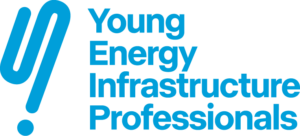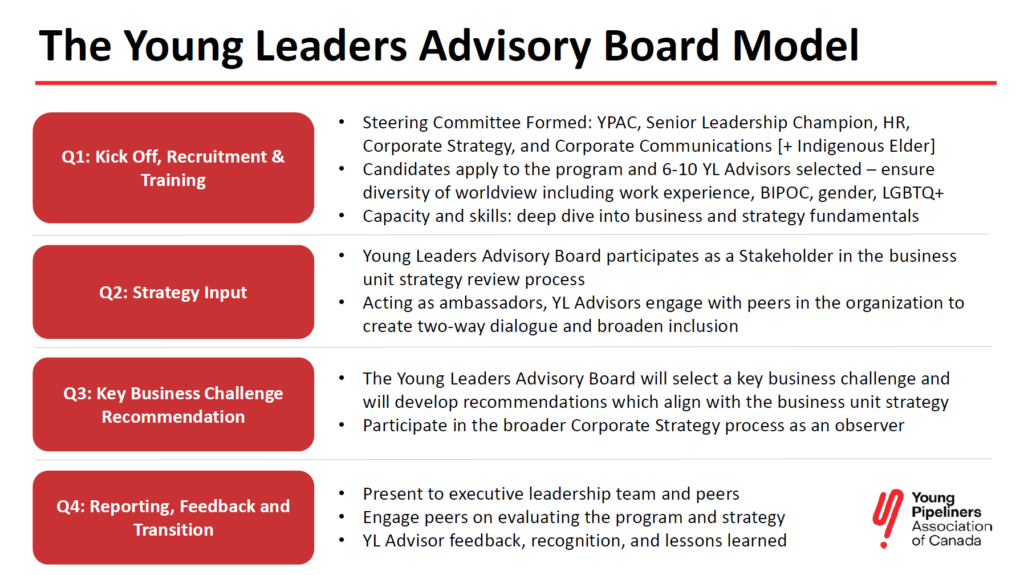
Return on Inclusion
Why include Young Professionals in decision making?
At YPAC, we believe that including the next generation in decision making leads to better business performance. The return on inclusion is threefold: 1) Attracting, retaining, and engaging Millennials and Gen Z, 2) Developing a pipeline of talent ensures sustainable succession planning, and 3) Exposing leadership to fresh ideas, perspectives, and worldviews improves how we respond to a rapidly changing world.

The Next Generation
When we talk about the next generation – we need to consider two key groups: Millennials and Gen Z. We’ll begin by grounding in some key forces shaping engagement with the next generation.
The oldest Millennials just turned 40. And Gen Z are our fresh-faced new grads and interns. Millennials and Gen Z will be 60% of the workforce by 2025 and 75% by 2030. By the numbers, they are our largest customer and stakeholder group. As an industry, we should seek to understand them very well.
Does your organization have a Millennial and Gen Z engagement strategy?
The next generation have high expectations of our business. If you don’t know what their expectations are, you can’t meet them. So, you need to start by asking young people what they want to see from you.
Across political lines, Climate Change and Environmental Protection are their top priority. This occurs in a market context of a (170$/tonne) or, in the natural gas world – an 8.50 $/GJ carbon tax by 2030.
Decarbonization and the energy transition presents an incredible opportunity for the pipeline industry. The next generation needs to understand the scale of that opportunity, and the excitement of participating. Millennials and Gen Z are looking to oil and gas companies to lead a vision of the future that is mitigating climate change while delivering reliable and affordable energy. And they need to know how pipelines are going to play a role in that future.
Numerous studies across the US and Canada tell us that Millennials are the least engaged generation at work. We know less about Gen Z because they are just entering the workforce. Millennials prioritize working for value-aligned organizations. They want to know that what matters to them matters to you too. We know that Millennials value being heard: inclusion of diverse perspectives in decision making is important to them.
And lastly, the greatest challenge of all – there is no solid foundation of trust that’s already been established for relationship building. Only 25% of Millennials trust big business.
And anyone associated with oil and gas – regardless of size – will always be big business. At best, Millennials and Gen Z just won’t care, but at worst, they may actively become opponents. Skeptical and disengaged millennials (including your employees) become brand destroyers. The destruction of the “pipeline brand” in the eyes of the next generation is critical because they are quickly going to be the single largest segment of the workforce, voter base, customers, and stakeholders.
A proactive Millennial and Gen Z engagement strategy means hard work to gain trust. The objective is not “to educate” this group of stakeholders, but to form meaningful relationships with them.

Inclusion Models
A lot of organizations are struggling with two apparently unrelated problems: how to engage younger workers and how to rapidly respond to changing market conditions. Organizations can tackle both problems at the same time by creating a Young Leaders Advisory Board, a non-executive group which advises senior leaders. YPAC has been working with industry partners to kick off pilot versions of this program.
Do you have a Young Leaders Advisory Board at your company?
The opportunity of YLAB is threefold:
- Tap into the energy and fresh ideas of the next generation to leverage their insights and to diversify the perspectives that leaders are exposed to.
- Engage and retain Millennials and Gen Z by demonstrating that they are being listened to and able to impact decision making. This makes the company a more attractive place to work.
- Develops emerging talent and builds a leadership pipeline that improves succession planning.
Here we’re applying best practices from stakeholder engagement (the principle of nothing about me without me) to harness inclusion for improved business performance on many fronts.
It seems to work – other industries have used this model to test drive ideas directly impacting the next generation, to evaluate business models, process redesign, and organizational transformation, and for many organizations, this has been a generator of new initiatives and innovations
Key to this is building authentic relationships. Building trust with the next generation starts by valuing diverse perspectives in decision making

Vision of the Future
For YPAC, based on what we’ve heard from engaging Millennials and Gen Z, we know that next generation expects us to lead a bold vision of the future which addresses their key concerns. We’ve articulated this vision in our Tenets.

Preventing Brand Destruction
We previously talked about brand destruction. And one of the single largest brand destroyers for the next generation is when oil, gas, and pipelines, is allergic to the words Climate Change.
Does your company talk explicitly about climate change on its website?
Do you have a public GHG reduction target?
As an industry, we need to understand that working in oil and gas, and pipelines, puts Millennials and Gen Z in conflict with their peers, their communities, and even themselves. Societal opposition obscures the meaning in their work. They want to know that the companies they work for care about climate change like they do.
At YPAC, we believe that pipeline infrastructure is essential to a net zero future which is reliable and affordable and is also mitigating climate change. There is huge opportunity for the industry and we want our members to be excited about the role of pipelines in reducing GHGs in many ways including but not limited to:
- Hydrogen, RNG, CCUS, biofuels
- Reducing Pipeline GHG (Methane) Emissions and enabling efficiency
- Coal to gas fuel switching and grid reliability (where natural gas power is backing up renewable generation)

Inclusive Innovation
Last year, YPAC partnered with Avatar on a transformational learning process to empower future leaders to build this exciting energy future. The program has now engaged over 300 young professionals.
Of the participants, 150 were from pipeline companies. Across Canada, they embarked on a 12-week action learning journey where they were tasked with solving and building business cases for ten of the most pressing energy challenges in the country. This was all offered in an all-virtual format.
By empowering emerging leadership inside oil and gas to champion disruption, rather than be displaced by it, Avatar fills the needed gap in the innovation ecosystem to truly create a new energy future.
Avatar Innovations has 3 inter-connected and related structures: The Avatar Program, the pre-accelerator educational and leadership development forum in the energy industry, the Avatar Accelerator, an energy sector specific business and technology accelerator and Avatar Ventures, an energy innovation investment fund.
The industry needs to adapt quickly and YPAC is so excited to be a partner in the program which empowers young professionals to build the future they want to see.
Part of what made Avatar so successful is that it was designed by young professionals, for young professionals.
Question to leaders: Can we take the idea of inclusion of those impacted in shaping the future – a principle which made Avatar so successful – and apply it how we engage the next generation?

The Seven Sacred Teachings
Building on the successful Avatar model, and based on what we’ve heard from engaging with the next generation, we started on a journey in the diversity, equity, and inclusion space. This kicked off formally with the formation of our Indigenous Inclusion Committee in 2020.
Working with the team of Indigenous young pipeliners on the committee has been a huge learning experience for everyone involved. We started last year by evaluating where our organization was at in terms of Inclusion and benchmarked ourselves against our peers. From there, we aimed to establish a foundational base of knowledge about Indigenous worldviews, history, and experiences for our leadership team. We’ve since built a strategy and action plan and are starting to execute that. For YPAC, we understand that engaging in reconciliation, and valuing inclusion, is an expectation of our members.
One thing that really resonated with YPAC in this process are the seven sacred teachings – at YPAC we use these as guiding principles for our inclusion strategy work. They are love, respect, courage, honesty, wisdom, humility, truth.

Engaging the Next Generation
We started out by exploring some of the major challenges that the pipeline industry is faced with when engaging with the next generation. Yes, Millennials and Gen Z have high expectations of us, but we can meet those expectations as long as we understand what the expectations are, and what this group values.
When we’re asked to engage with the next generation of leaders, three of the sacred teachings stand out:
Courage: the world is changing, it takes courage to have a bold vision of what the future can be even when it is scary and hard – this means understanding what matters to the next generation including climate change, and demonstrating how your organization is part of a net zero future and is engaging in reconciliation
Respect: when we include those who are impacted, and respect others by valuing their contributions and worldviews, we make better decisions and have better outcomes. Millennials and Gen Z expect to be included, and they are asking that organizations engage them in shaping strategy. One way to do that is with a young leaders advisory board or through programs like Avatar.
Humility: it is okay to acknowledge that we’re learning, that we’re new to something, that we don’t have all of the answers – that is the path to development and growth. Building authentic relationships with the next generation will require trust, which starts from a place of humility.
